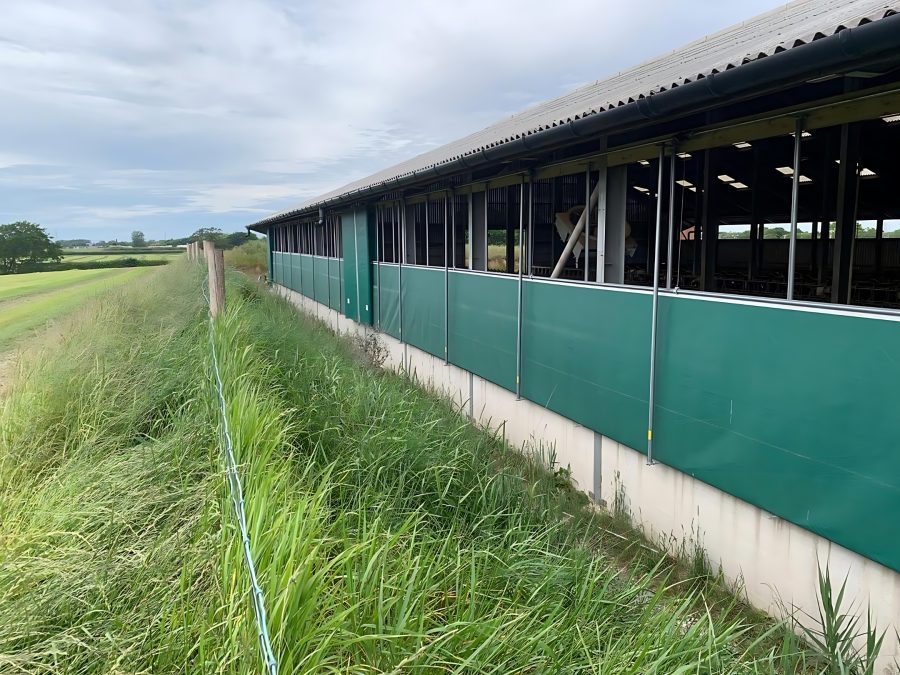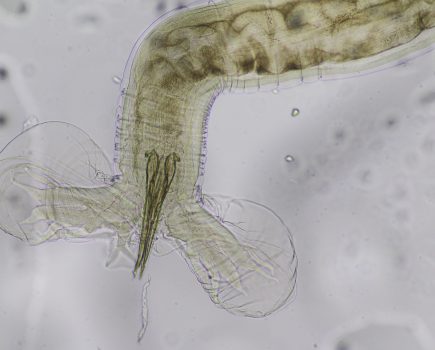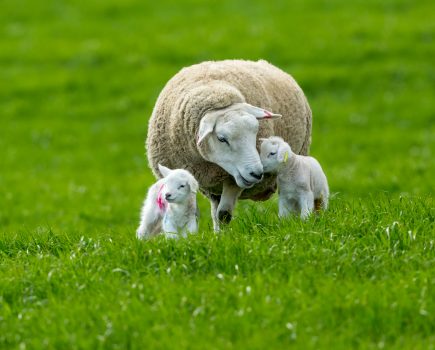With straw availability predicted to be poor this winter, livestock farmers across the country are urged to think about optimising housing conditions to make best use of bedding resources.
A wet 2023 autumn resulting in many cereal crops not being planted or failing, coupled with the unusually wet spring, means yields from this years’ harvest are expected to be low. The Agriculture and Horticulture Development Board (AHDB) is estimating wheat yields 7% below the five-year average[1].
These adverse conditions are also reflected in the cost of straw, with prices rising on previous year averages.
Reducing bedding use by effectively weather-proofing livestock sheds could be a big cost-saver for farmers this year, and this doesn’t have to be a permanent or costly change.
Galebreaker’s ventilation engineer, Scott Gearon, explained: “Prioritising the allocation and use of straw can be supported by shielding cattle and sheep from adverse weather, as well as ensuring good shed ventilation. Well-ventilated buildings will help keep bedding dry, consequently helping to reduce the overall consumption of bedding resources during the winter months,” he says.
Galebreaker’s mesh screens, such as the Rollerscreen or Bayscreen solutions, provide protection from the elements while allowing optimal airflow to pass through buildings.
“Introducing effective ventilation removes humidity in sheds and keeps bedding drier for longer. This is particularly important when managing youngstock. A damp environment causes cold stress on calves, increasing the pathogen load and the risk of diseases such as pneumonia and Bovine Respiratory Disease (BRD).”
Mr Gearon added: “These types of mesh screen provide flexibility for farmers. Using screens to adapt existing farm buildings and being able to remove screens when mucking out or getting machinery in and out of sheds is a real advantage to farmers.
“Likewise, when we’ve tested our standard screen mesh alongside traditional cladding options, such as space boarding, Yorkshire boarding and vented metal cladding, the mesh has matched or outperformed these choices in terms of wind break efficiency, ventilation, rain penetration light transmission and cost,” he explained.
“Effective weather protection solutions can help support livestock performance over the tougher winter period while significantly reducing the frequency of bedding replacements.
“It’s these types of cost-savings that could pay dividends for farmers this year in light of straw shortages and price increases.”
For more like this, sign up for the FREE South East Farmer e-newsletter here and receive all the latest farming news, reviews and insight straight to your inbox.







